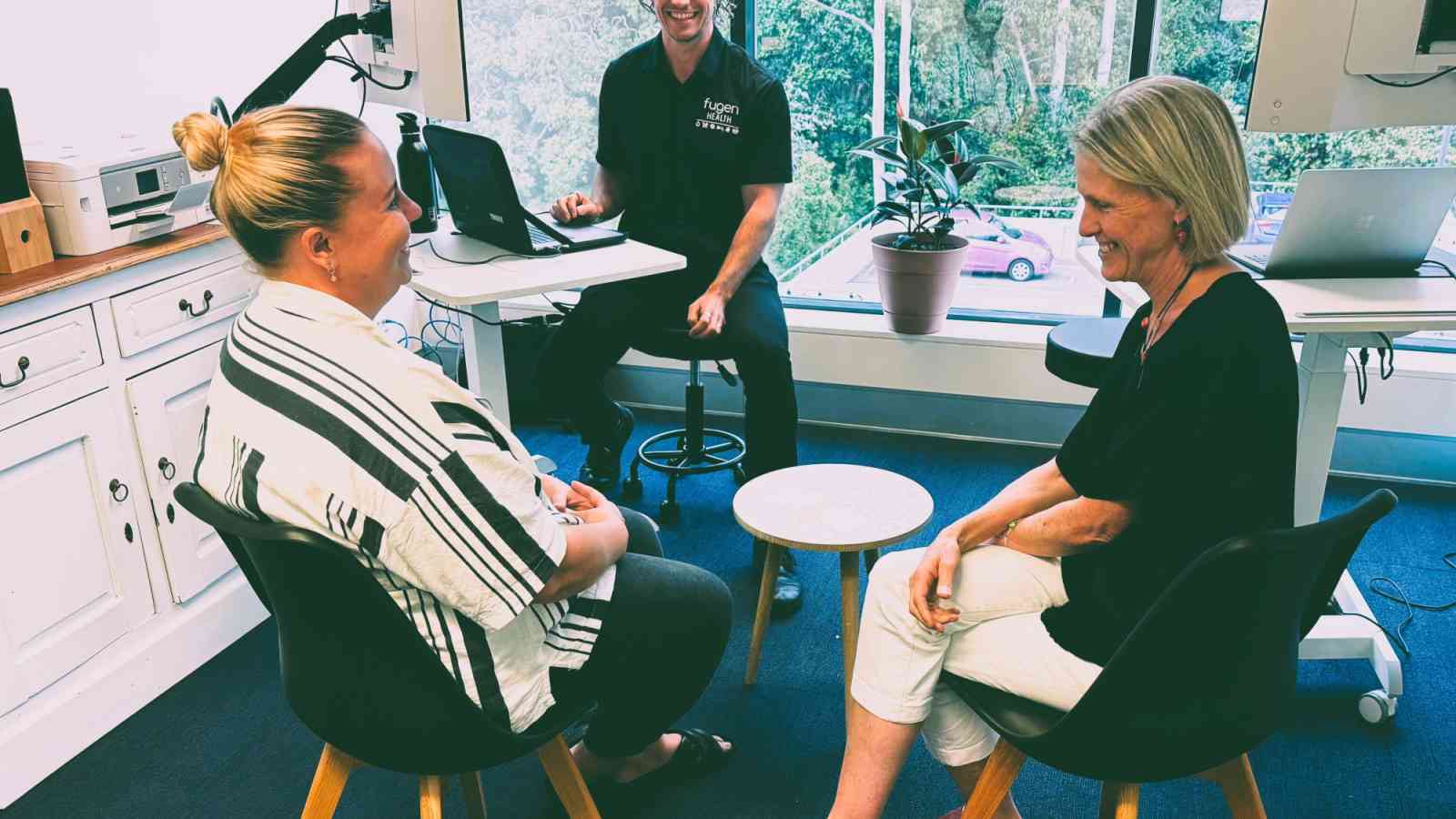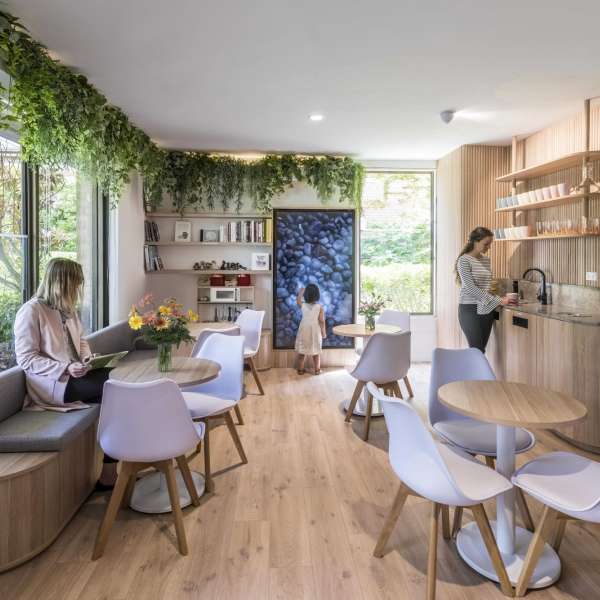
How does Deep Health apply to preconception care, post natal depletion, thyroid disorders, menopause and osteoporosis?
Dr Penny Caldicott, an experienced integrative GP, and Naturopath Adrian Adams, an expert in nutrition and naturopathy, have united to work with Genbiome and Fugen Health. Their collaboration is a testament to their shared dedication to delivering all-encompassing and individualised care.
Penny and Adrian have been instrumental in the development of the highly successful Deep Health model of care, a unique and effective approach that combines the skills of a doctor and naturopath to assess and treat each patient. This model, initiated over a decade ago in Penny's previous practice, has consistently delivered enhanced clinical outcomes and fostered a sense of respect and engagement with the patient's journey, providing reassurance to all who seek their care. In this model Penny and Adrian will see each patient together for the first 2-3 visits and follow-up visits will be with Adrian when Penny’s GP skills are no longer needed – she can come back into the consults if needed down the track.
Penny and Adrian will be working in the areas of: preconception care, post natal depletion, thyroid disorders, menopause and osteoporosis.
We now live in a time where 25% of our children have at least one chronic condition. This is because our genes are informed by our rapidly changing modern environment, allowing previously quiet genes to express in ways that contribute to chronic conditions. These epigenetic alterations can (Cleveland Clinic: Epigenetics) occur even before conception and certainly during pregnancy, which is why pre-conception care for the mother, minimising environmentally challenging factors and maximising healthy lifestyle factors and micronutrients, is an important approach. Many people are now low in micronutrients, critical vitamins and minerals needed by the body in tiny amounts WHO: Micronutrients
A growing baby needs a constant supply of these micronutrients, during pregnancy the developing baby receives all the necessary nutrients preferentially, in some cases leaving the mother in a depleted state. Our approach is designed to address all these factors before conception to help with pregnancy and recovery for the mother after the birth. We will also see mothers after birth if they are struggling with fatigue and other symptoms that have collectively been described as 'Postnatal Depletion’. ABC News: What is postnatal depletion and do I have it?
Approximately 10% of pregnant women in Australia suffer from mild hypothyroidism (subclinical) secondary to autoimmune thyroid disease (Hashimoto's thyroiditis). This can, in some women, become a chronic condition after pregnancy, requiring thyroid hormone replacement therapy. Hashimoto's can also exist pre-pregnancy and needs to be managed by specialist doctors during pregnancy. We can see patients (women and men) with the diagnosis or symptoms of a thyroid disorder, as specific micronutrients and other environmental factors contribute to early and established thyroid disorders, we can investigate these and support/treat. Australian Thyroid Foundation: Definitions
Perimenopause is now sneaking up quickly for women who are having babies a little later in life, a trend since the 1990’s. In the past perimenopause was more likely to occur when women were also facing an empty nest at home, now it can also start while in the midst of taking care of a young family and working – a time that demands so much of a woman’s energy, often with little reserve. We can assess current symptoms and state of health and guide women towards the lifestyle changes and therapeutic approaches to aid adaptation to the changes that menopause brings.
Osteoporosis is thinning of bones that occurs for some women, and less commonly men as they age. Early bone loss is called osteopenia and is diagnosed on a bone mineral density scan, usually done at the time of menopause. There can be many contributing factors and part from medication, people often feel at a loss for how to prevent further bone loss. There are so many approaches that can help to support bone density, we can offer an in depth assessment and an individualised treatment plan to guide you.
